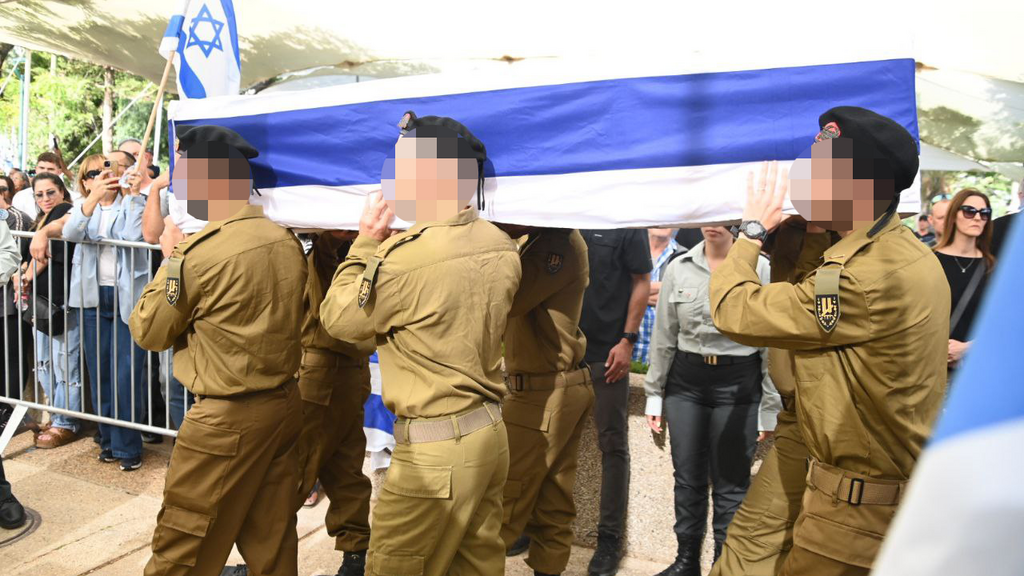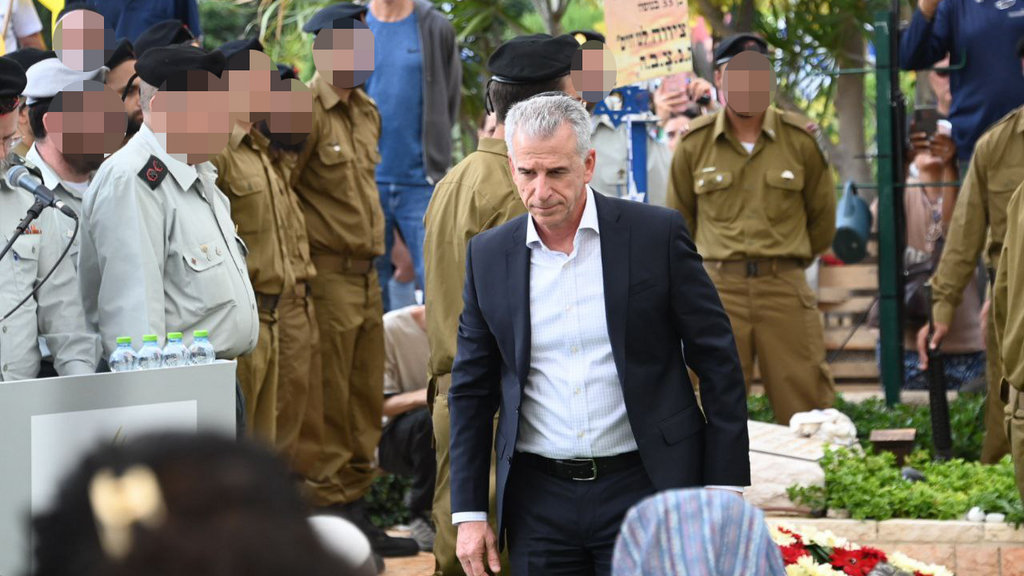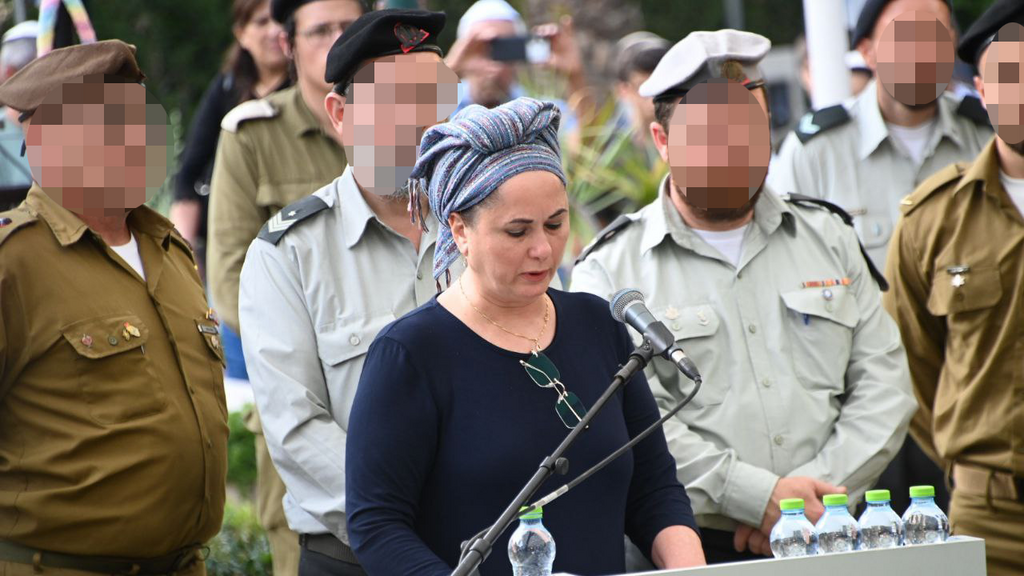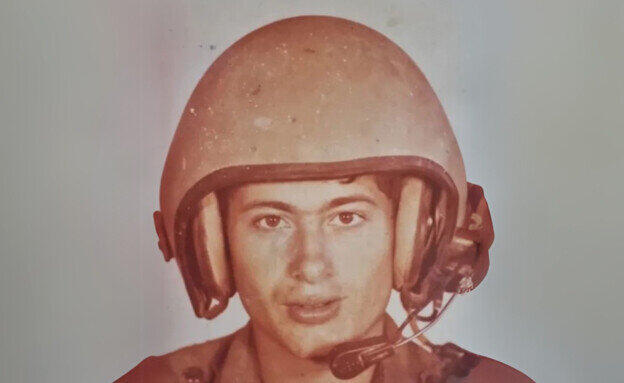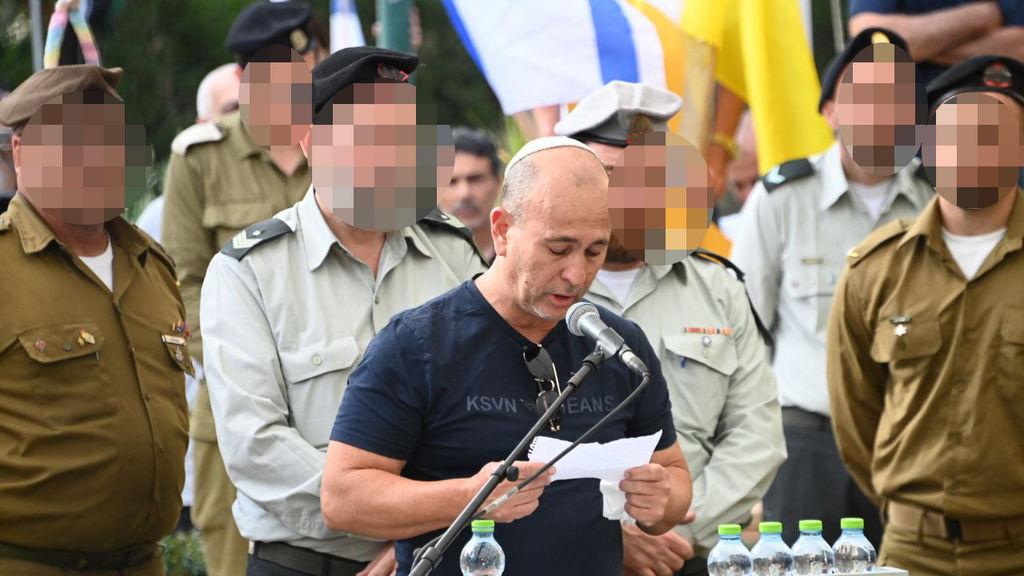More than four decades after he fell in the 1982 Battle of Sultan Yacoub, Staff Sgt. Tzvi Feldman was laid to rest Monday evening in a military ceremony at the Holon Cemetery. Feldman’s remains were returned to Israel over the weekend in a secret Mossad and IDF operation carried out deep inside Syria.
Hundreds of mourners gathered to pay their final respects, including Aliyah and Integration Minister Ofir Sofer, Mossad Chief David Barnea, and other officials.
Col. Itamar Michaeli, commander of the Harel Brigade, eulogized Feldman, calling his return "the closing of a personal and national circle." “This has been an unimaginable journey of 43 years to bring him to a Jewish grave in Israel,” Michaeli said. “This is a message from the IDF and the state to its soldiers: that we never give up.”
Feldman was killed on the sixth day of the First Lebanon War during a mission to secure Israel’s northern border. “Then, as now,” said Michaeli, “he understood that without fighters willing to defend the country, even at the cost of their lives, there is no future for the next generation in Israel.”
Addressing Feldman’s siblings—Yitzhak, Shlomo, and Anat—Michaeli said: “Zvika drew his dedication and sense of sacrifice from your home. He gave his life so that we may live. Bringing him back is a multigenerational mission.”
Feldman’s sister Anat, speaking through tears, recalled the day her brother went off to war. “Almost 43 years have passed since you left for battle. We always hoped you were still alive. That long journey began on a Saturday when they came to draft Yitzhak. You told him, ‘Don’t worry—it’ll be OK.’ The next day, both of us put on our uniforms—you were heading to reserve duty in Tze'elim, and I was in active service.”
She described how she packed his bag and noticed he’d tucked in his harmonica—he always loved music and lifting spirits. “I’ll never forget how Mom ran after you and asked, ‘Zvika, which Saturday will you be back?’ You answered, ‘I don’t know which Saturday.’ I had a terrible feeling that morning. When I got the call, I screamed, ‘What happened to Zvika?’ and ran out of the base.”
Despite pressure to be discharged from service, she continued serving. “I wanted you to be proud of me. You’re buried now as a soldier who fell defending Israel. Please be our advocate in heaven. May all our captives, prisoners and MIAs come home.”
His brother Shlomo remembered waiting for Zvi to return from the army and running to greet him when the bus arrived. “You always made sure I didn’t lack a thing. Today we fulfill Mom’s dying wish: not to rest until you were brought home.”
Brother Yitzhak thanked the prime minister, the president, and the Mossad. “Above all, I thank God for bringing him home from enemy soil,” he said, adding a message to the families of hostages: “Do not give up hope. If we didn’t, you shouldn’t either.”
Mossad agents spent five months locating Feldman’s grave, operating under Syrian President Bashar al-Assad’s nose. The agents, posing as cemetery workers, advanced centimeter by centimeter under strict watch, not allowed to dig openly. They smuggled soil samples out until DNA testing confirmed the location. “When I saw his uniform,” one operative said, “I knew we were in the right place, even before the DNA results.”
Get the Ynetnews app on your smartphone: Google Play: https://bit.ly/4eJ37pE | Apple App Store: https://bit.ly/3ZL7iNv
Feldman fell in the Battle of Sultan Yacoub on June 10-11, 1982, one of the most controversial battles of the First Lebanon War. The IDF had been ordered to seize a strategic junction near the village of Sultan Yacoub. Unaware that Syrian forces were nearby, Israeli armored units walked into a deadly ambush. The battle lasted eight hours, resulting in 20 Israeli dead, dozens wounded, and six missing.
Of the six, some were later accounted for. One soldier, Zohar Lipschitz, was killed and buried in Syria; his body was returned after the war. Two others—Eric Lieberman and Hezi Shai—were captured and later freed. A fourth soldier, Zachary Baumel, was returned to Israel in 2019. One, Yehuda Katz, remains missing to this day.
Feldman’s return closes one of the last open wounds from that battle. His homecoming, family members said, is a testament to Israel’s enduring promise to never leave a soldier behind.


